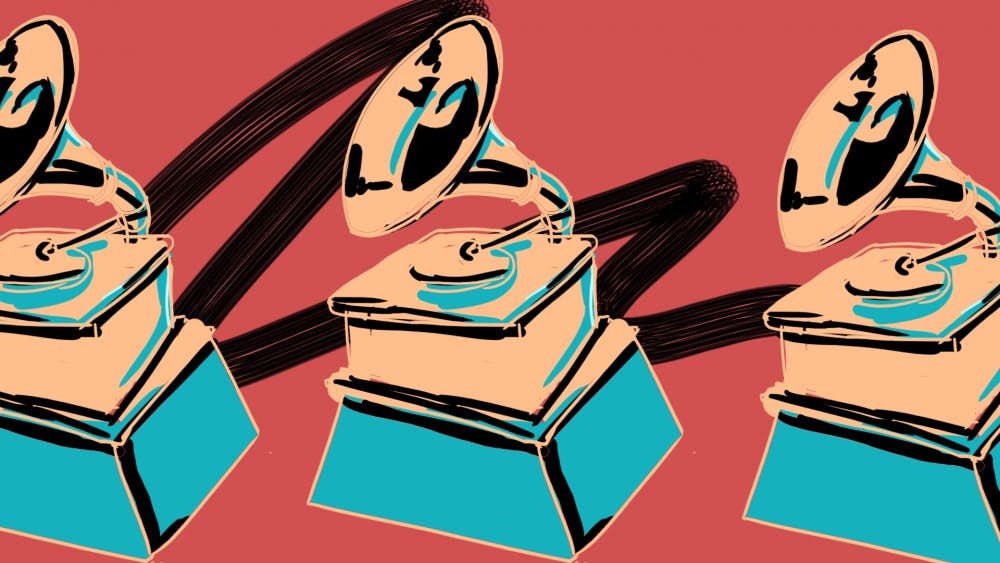Wedged between the Golden Globes and the Oscars, the Grammys always seems to be the arts award show that's hastily passed by. The first Grammys were in 1959 when only 28 different awards were given out. Since then, categories have been added and removed, and at one point even reached more than 100. However, even with the addition of new categories, the Grammys still don't feel like they're inclusive to important genres of the music industry, the most obvious being hip–hop and rap.
The last time the Grammy for Album of the Year went to the rap genre was in 2004, when Outkast’s Speakerboxxx/The Love Below took the highest award of the night. That was fifteen years ago. Kendrick Lamar and Drake declined invitations to perform at this year's ceremony, despite having the most Grammy nominations of the night. It was even more awkward when Childish Gambino’s “This is America” was the first rap song ever to win Best Song of the Year and he wasn’t there to accept the award. Drake was there to accept his win for Best Rap Song for “God’s Plan,” only to have his speech cut off. It didn’t go unnoticed, especially after Drake posted an Instagram picture shortly after with the caption “Too raw for TV.”
Even though Kendrick Lamar performed at the Grammys last year, the absence of big hip–hop and rap artists at the Grammys shouldn’t be a surprise. The category of Best Rap Album caused uproar in 2014 when Macklemore and Ryan Lewis’s The Heist won over Kendrick Lamar’s good kid, m.A.A.d. City. The dissonance between rap artists and the Grammy awards has a long history, dating all the way back to 1989 when DJ Jazzy Jeff & the Fresh Prince, J.J. Fad, LL Cool J, and Salt–N–Pepa were all nominated for the Best Rap Performance Award and it wasn’t televised.
The relationship between the Grammys and hip–hop and rap implies a lack of respect for these genres and their cultural significance in America. When some of the biggest artists of this generation collectively take a stand against the biggest award ceremony dedicated to musicians, there’s clearly a problem. The issue doesn’t lie in the fact that hip–hop and rap artists aren’t getting nominated for awards—it's that they rarely actually take them home. Last year, Jay–Z was nominated eight times, but didn’t end up winning anything. At a concert in 2012, Kanye West voiced his opinion on the Grammys by saying, “Since when was making art about getting rich? … Remind me again why we in this sh*t? Remind me again why the Grammys [can] suck my d*ck.” However, other artists like John Legend caution against an all out boycott, saying that not showing up isn’t a true solution.
That’s not to say that The Recording Academy isn’t trying to improve the Grammys. Last year, they faced criticism because only one female artist won a solo award, and this year Alicia Keys hosted the show with a slew of powerful women around her, including Michelle Obama, Lady Gaga, and Jennifer Lopez. Cardi B made history this year as the first solo female artist to win Best Rap Album. Nine hundred new members were also added to The Recording Academy to provide more diversity in the votes that contribute to deciding awards. However, it’s going to take more than that to brand the Grammys as an awards show that the music industry and their fans take seriously.
By consistently snubbing hip–hop and rap artists in nomination categories that feature a wide range of genres, the Grammys shows a lack of respect to the hip–hop and rap community. If the Grammys want to stay culturally relevant, it’s going to take collaboration between hip–hop and rap artists and The Recording Academy. Only then will it become an awards show that truly reflects the culture of the music world.

